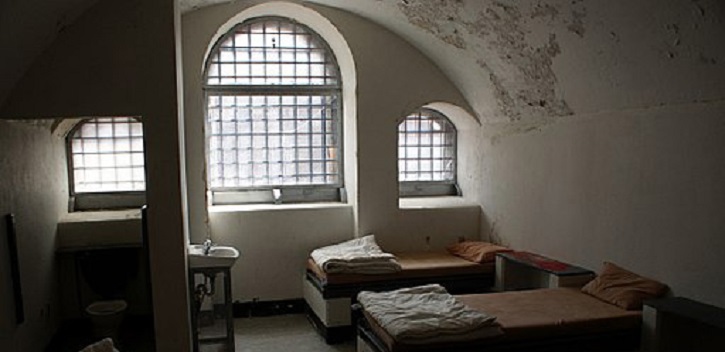Opinion: Vulnerable children become vulnerable adults.

There is increasing evidence that the greater the ratio of childhood trauma, the more detrimental the impact will be on a person over their lifetime.
According to criminologists Georgia Zara and David P Farrington, people who grow up to be chronic offenders suffer a range of other arguably more devastating personal difficulties in adulthood than the volume of their amassed convictions. These include emotional instability, mental illness, addiction, poor physical health, unemployment, hostility, family conflict and broken homes.
Since 1998, Vincent Felitti, Robert Anda and colleagues have accumulated evidence that Adverse Childhood Experiences (ACEs) literally attack the structures of a child’s developing brain, leading to "lasting effects on brain structure and function". This brain injury - acquired in infancy or adolescence - has serious individual and societal costs.
Basically, ACEs cause the production of toxic stress or cortisol in children which activate the "fight/flight/freeze" response and stunts the development of normal neural pathways. Childhood trauma haunts people into adulthood. Over time, the traumatized person’s "window of tolerance", where they can comfortably "metabolize" the ups and downs of daily life, shrinks. This causes them to either remain constantly on high alert for danger, responding with anger, violence, impulsivity or defensiveness (hyperarousal) or by shutting down/disconnecting (hypoarousal) when emotionally overwhelmed or triggered.
ACEs in the general population are commonplace and many of us will have experienced at least one ACE in childhood
ACEs are divided into three groups: abuse, neglect, and household challenges. The ACE Score Calculator poses 10 questions about experience of childhood trauma relating to persistent physical abuse, persistent emotional abuse, contact sexual abuse, physical neglect and emotional neglect. The questions also relate to the presence of an alcoholic/drug abuser in the home, presence of a depressed, mentally ill or suicidal family member, domestic violence, loss of/separation from parent(s) and imprisonment of a family member.
ACEs in the general population are commonplace and many of us will have experienced at least one ACE in childhood. In a study of over 17,000 ordinary Americans, almost two-thirds of people reported at least one ACE, and more than one in five reported three or more ACEs. One in 16 research participants experienced four or more ACEs.
ACEs contribute to ischemic heart disease, liver disease, mental illness (chronic anxiety, chronic depression, OCD, bipolar disorder), obesity, alcoholism, drug addiction and early death. The greater the ratio of childhood trauma, the more detrimental the impact on a person will be over their lifetime.
All social and public services need to become trauma-informed as a matter of urgency
The original study did not include research subjects from psychiatric hospitals, prisons, or those accessing homeless services, where the rate of child neglect and abuse is higher than in the general population. In a Welsh study of ACEs study from 2015, 47 percent of the 2,028 adults surveyed reported having experienced at least one ACE and 14 percent experienced four or more ACEs.
Compared with interviewees with no experience of ACEs, those who experienced four or more ACEs were 14 times more likely to have been a victim of violence over the last 12 months; 15 times more likely to have committed violence against another person in the last 12 months; 16 times more likely to have used crack cocaine or heroin and twenty times more likely to have been incarcerated at any point in their lifetime.
Lambert and Gill-Emerson’s recent investigation into the prevalence of ACEs among Cork Simon Community homeless service-users yielded fascinating results. Fifty service-users were surveyed and 77 percent had four or more ACEs, while eight percent had 10 ACEs. More than one in three were sexually abused as children, a quarter were subject to physical neglect and two thirds experienced emotional neglect.
Over 70 percent lived with an alcoholic or drug addict, more than 50 percent lived with a mentally ill person, 50 percent were raised in a single parent household and almost one third grew up in home where a was family member incarcerated. Almost half witnessed their mother being subjected to domestic violence. 90 percent of the research subjects had been seen by a psychiatrist or psychologist, over 71 percent had a history of suicidal thoughts, 62 percent had experienced drug overdose and nearly 45 percent had previously self-harmed.
Dr Daniel Sumrok, Director of the Center for Addiction Sciences at the University of Tennessee, has called for addiction to be renamed "ritualized compulsive comfort-seeking". In his view, it is a "normal response" to ACEs, "just like bleeding is a normal response to being stabbed". In working with people to overcome harmful substance dependencies, he aims to help them find a healthier coping strategies "that won’t kill them or put them in jail".
All social and public services, including criminal justice agencies and prisons, need to become trauma-informed as a matter of urgency. This means learning about ACEs and their devastating impact on human lives. Vulnerable children become vulnerable adults, with expensive health complaints and problematic relational and social behaviours.
If the "fight/fright/freeze" response that is triggered in stressful situations is understood properly, we might see superior strategies for interacting with unrecovered trauma survivors. This is particularly true of those who are hardest to reach and demonstrate oppositional or aggressive behaviours when challenged or fearful. By Jane Mulcahy is an Irish Research Council-funded employment-based PhD scholar in the School Of Law at UCC. Her research is co-funded by the Probation Service and the employment partner is the Cork Alliance Centre
Jane Mulcahy is an Irish Research Council-funded employment-based PhD scholar in the School Of Law at UCC. Her research is co-funded by the Probation Service and the employment partner is the Cork Alliance Centre.
This article was first published on RTÉ Brainstorm
For more information about research and courses in the School of Law visit here
Media: For more information contact Ruth Mc Donnell, Head of Media and PR, Office of Marketing and Communications, UCC Mob: 086-0468950
